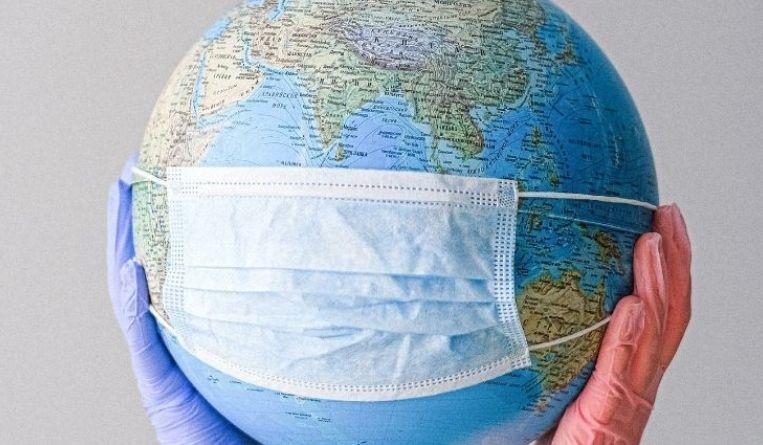IP rights waiver on Covid-19 products: compromise reached
06 April 2022

Talks about waiving intellectual property rights for Covid-19-related products are seeing positive developments with India, South Africa, the United States and European Union reaching a compromise in March after 18 months of stalled negotiations.
Said compromise however, only covers patents and Covid-19 vaccines.
Under the compromise, a developing country accounting for less than 10 percent of global exports of vaccine doses in 2021 may authorize the manufacture of a patented vaccine to inoculate its citizens without the patent owner’s permission.
India and South Africa submitted the proposal for a temporary waiver on IP rights to the World Trade Organization (WTO) in October 2020. The objective was to help fight the Covid-19 pandemic by increasing drug and vaccine production globally and addressing the problem of inequitable access to these products between rich and poor countries.
For Pravin Anand, managing partner at Anand & Anand in Noida, a waiver on patent rights or any other IP rights for that matter is not a viable solution to the inequitable distribution of Covid-19 vaccines.
Anand cited the following reasons:
- There is scarce evidence that patent rights are the reason behind the delay in vaccine production and distribution. Other factors have been seen to have caused this: bottlenecks resulting from the highly technical process of producing a vaccine, dearth of production facilities, low financing, tight supply of crucial pharmaceutical ingredients, inadequate distribution networks wherein proper handling of vaccines at a certain temperature cannot be assured in low- and middle-income countries.
- IP rights are known to promote innovation. As such, IP rights are viewed as tools to help the world find its way out of the Covid-19 crisis; not as incongruities which need to be eliminated.
- The risks significantly outweigh the supposed benefits.

The inability of third-party manufacturers to produce equally safe and efficacious vaccines presents a risk as this requires a highly sophisticated manufacturing process, sound infrastructure and sophisticated distribution chains.
“Each stage of the vaccine manufacturing process requires significant investment and know- how, requiring deep expertise in the subject matter and years of experience. In addition to the same, the novice firms with no past expertise in manufacturing vaccines may end up wasting crucial ingredients,” said Anand, “which are already limited in number.”
There is also the possibility that only a few pharmaceutical companies and other players will innovate further unless there is some reward mechanism in place considering the huge amount of research, monetary and technical resources involved with no assurance of success.
Add to this the risk of counterfeit vaccines further increasing in the market.
- The very reason for the waiver - to allow countries to authorize the production of generic Covid-19 products and technologies without facing negative consequences - may also be addressed via compulsory licenses which is an alternative proposal. Compulsory licenses provide authorization to companies to manufacture a product as the need arises, without permission from the patent holder and with certain conditions.
“Covid-19 vaccines should be made available to as many people as possible globally given they have been found to provide high protection against severe illness from all the coronavirus variants. Testing and diagnosis tools are further support for important anti-epidemic measures and protection of the general public. It is questionable however whether a free license on patents would much support this goal of providing protection to as many people as possible across the world,” said Kristian Robinson, managing director of Spruson & Ferguson Asia.
Robinson’s statement and the reasons cited by Anand bring us to the idea of the IP waiver covering only patents and Covid-19 vaccines.
“While on the Covid-19 vaccines front a waiver on patent rights may have some degree of positive impact, a waiver on patent rights over testing and diagnostic tools would have created a dramatic improvement in the situation,” said Tarun Khurana, a partner at Khurana & Khurana in New Delhi.

“If the waiver only applies to patents and vaccines, a patent holder may not necessarily be under any obligation to transfer associated but crucial technological or manufacturing know-how,” said Anand. “The same assumes crucial importance in the development of vaccines, especially mRNA vaccines, which are difficult to reproduce. A patent will thus, not comprise the technical know-how, trade secrets, etc. and there appears to be no mechanism in place for any government to force transfer trade secrets even under such a waiver.”
Robinson added that if trade secrets, a core asset of any R&D-driven company, along with patents, are given away in a forced technology transfer, future innovation will be disadvantaged.
“Compared to a license on patents that is offered over a limited time, trade secrets and core know-how would be lost forever in a forced technology transfer. For companies that make long-term investments in R&D and innovation, losing their core know-how assets will potentially limit their ability and willingness to future invest in innovations needed to address new pandemics,” he explained.
While Anand believes limiting the waiver to countries which exported less than 10 percent of global exports of vaccine doses last year a reasonable idea, Khurana takes issue with it.
“[This] would mean that the supply constraints pertaining to raw materials is here to stay for countries like India which have been major suppliers of the vaccines, but which are dependent on supply of key raw materials required for production of vaccines,” Khurana explained.
For Robinson, it is important to work with patentees and originators in terms of expanding their production.

“For as many people as possible to be protected, we should use the most effective vaccines in all countries of the world regardless of the fact whether they are a WTO country or have been exporting vaccines themselves to a significant degree. To protect the originator’s assets obtained on their R&D investments is important and therefore waivers should be time limited. However, a forced trade secret transfer cannot be time limited and would be likely needed to achieve the goal, if vaccines should be made by third parties. Based on these limitations, collaboration with the originators to expand production would appear the faster option to achieve the goal,” he said.
Robinson added that originators in China and in the West are working on expansion of their production as well as suitable pricing schemes for developing countries.
According to a Reuters article, the text for the compromise was being circulated to officials in Brussels, Washington, Johannesburg and New Delhi after which it will be presented to other WTO member countries.
Espie Angelica A. de Leon






